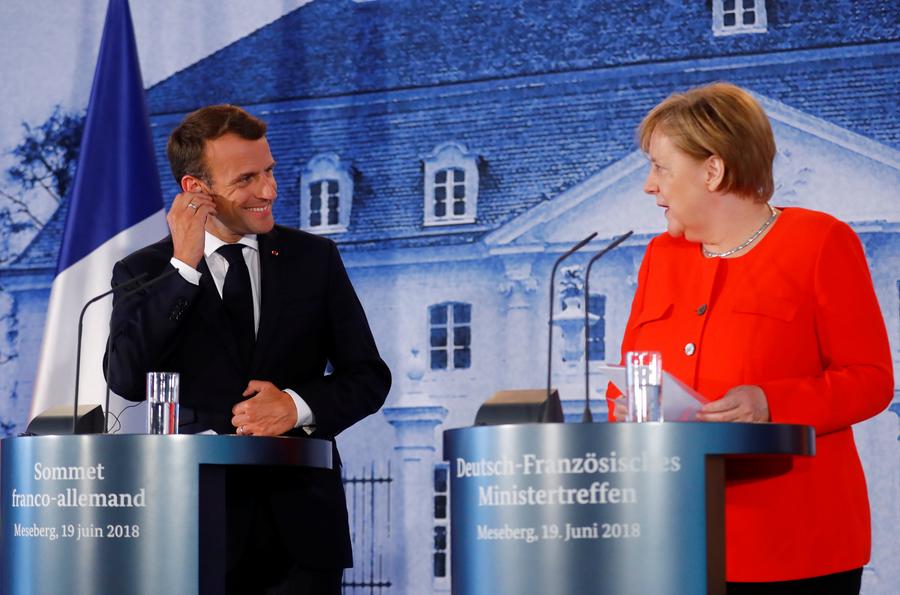Merkel, Macron agree on major EU reforms
Xinhua | Updated: 2018-06-20 09:25

BERLIN - Germany and France have agreed on major EU reform plans after German Chancellor Angela Merkel and French President Emmanuel Macron met Tuesday to prepare the June 28-29 EU summit.
According to the statement released after the two leaders' talks in Meseberg outside Berlin, Germany and France are to "open a new chapter" as Merkel told reporters.
The two biggest countries in EU agreed on a series of issues which will serve as basis on EU summit for further negotiations and major achievements.
Merkel and Macron agreed that that EU member states should integrate their data systems and work more closely with refugees' home countries. Both said efforts should be made to provide young people with better prospects for the future, especially in Africa.
The two leaders agreed that that EU should adopt a united approach to asylum-seekers. Common criteria are needed to determine who is and who is not granted asylum, they said.
Germany's ruling coalition was stuck in a crisis as Merkel's Bavarian ally threatened to introduce tougher immigration policy and border controls and later they made compromise allowing Merkel two more weeks to find a European solution in the summit.
"Unilateral, uncoordinated measures will split Europe, divide its populations and jeopardize the Schengen system," said the statement.
The two countries agreed to build a genuine European border police force and establish a European Asylum Office that harmonizes asylum practice.
The two countries also reached an agreement to create a multi-billion eurozone investment budget for balanced economic development of the bloc, which will be operational from 2021.
Both Germany and France want to reduce the power of EU commissioners, and they ensure that there will be fewer commissioners in the future, according to the statement.
In terms of the foreign and defense policy, the two countries called for a European debate on new formats, such as an EU Security Council, and opportunities for closer coordination within the EU and in external fora.
They agreed to make progress towards a more integrated European defense, including all civilian and military aspects and resources of EU crisis management.
The current European Stability Mechanism (ESM), introduced in 2012 to deal with the eurozone crisis, will be turned into a European monetary fund, which can offer loans to struggling EU countries, and better insulate the single currency from future crises.
























